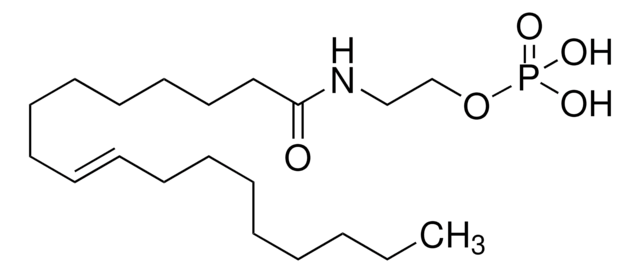P3075
Phenylarsine oxide
≥97%, powder
Sinónimos:
Arzene, Oxophenylarsine, PAO
About This Item
Productos recomendados
biological source
synthetic (organic)
Quality Level
assay
≥97%
form
powder
color
white to off-white
mp
145-148 °C
solubility
DMSO: 50 mg/mL
SMILES string
O=[As]c1ccccc1
InChI
1S/C6H5AsO/c8-7-6-4-2-1-3-5-6/h1-5H
InChI key
BQVCCPGCDUSGOE-UHFFFAOYSA-N
¿Está buscando productos similares? Visita Guía de comparación de productos
General description
Application
Biochem/physiol Actions
Features and Benefits
signalword
Danger
hcodes
Hazard Classifications
Acute Tox. 3 Inhalation - Acute Tox. 3 Oral - Aquatic Acute 1 - Aquatic Chronic 1
Storage Class
6.1C - Combustible acute toxic Cat.3 / toxic compounds or compounds which causing chronic effects
wgk_germany
WGK 3
flash_point_f
Not applicable
flash_point_c
Not applicable
Certificados de análisis (COA)
Busque Certificados de análisis (COA) introduciendo el número de lote del producto. Los números de lote se encuentran en la etiqueta del producto después de las palabras «Lot» o «Batch»
¿Ya tiene este producto?
Encuentre la documentación para los productos que ha comprado recientemente en la Biblioteca de documentos.
Los clientes también vieron
Nuestro equipo de científicos tiene experiencia en todas las áreas de investigación: Ciencias de la vida, Ciencia de los materiales, Síntesis química, Cromatografía, Analítica y muchas otras.
Póngase en contacto con el Servicio técnico















